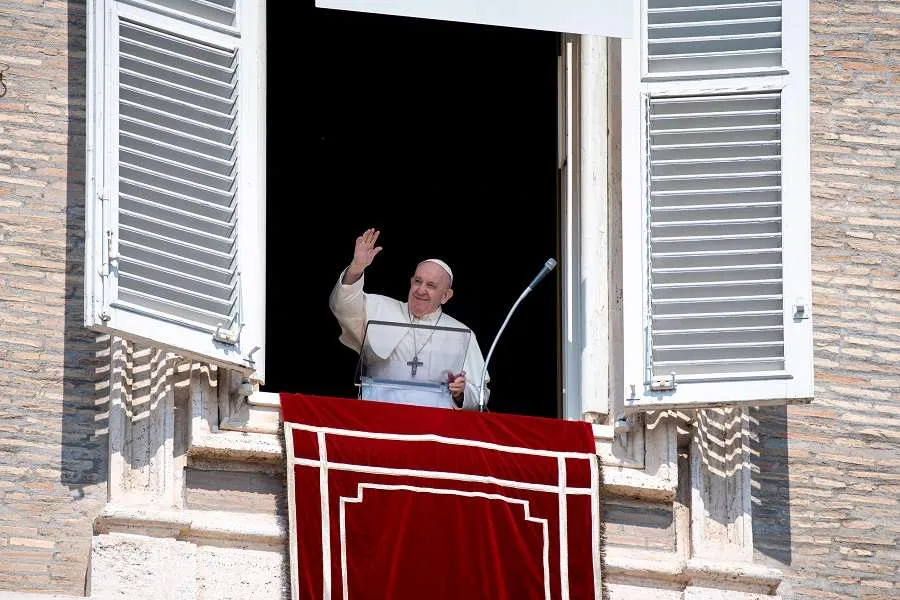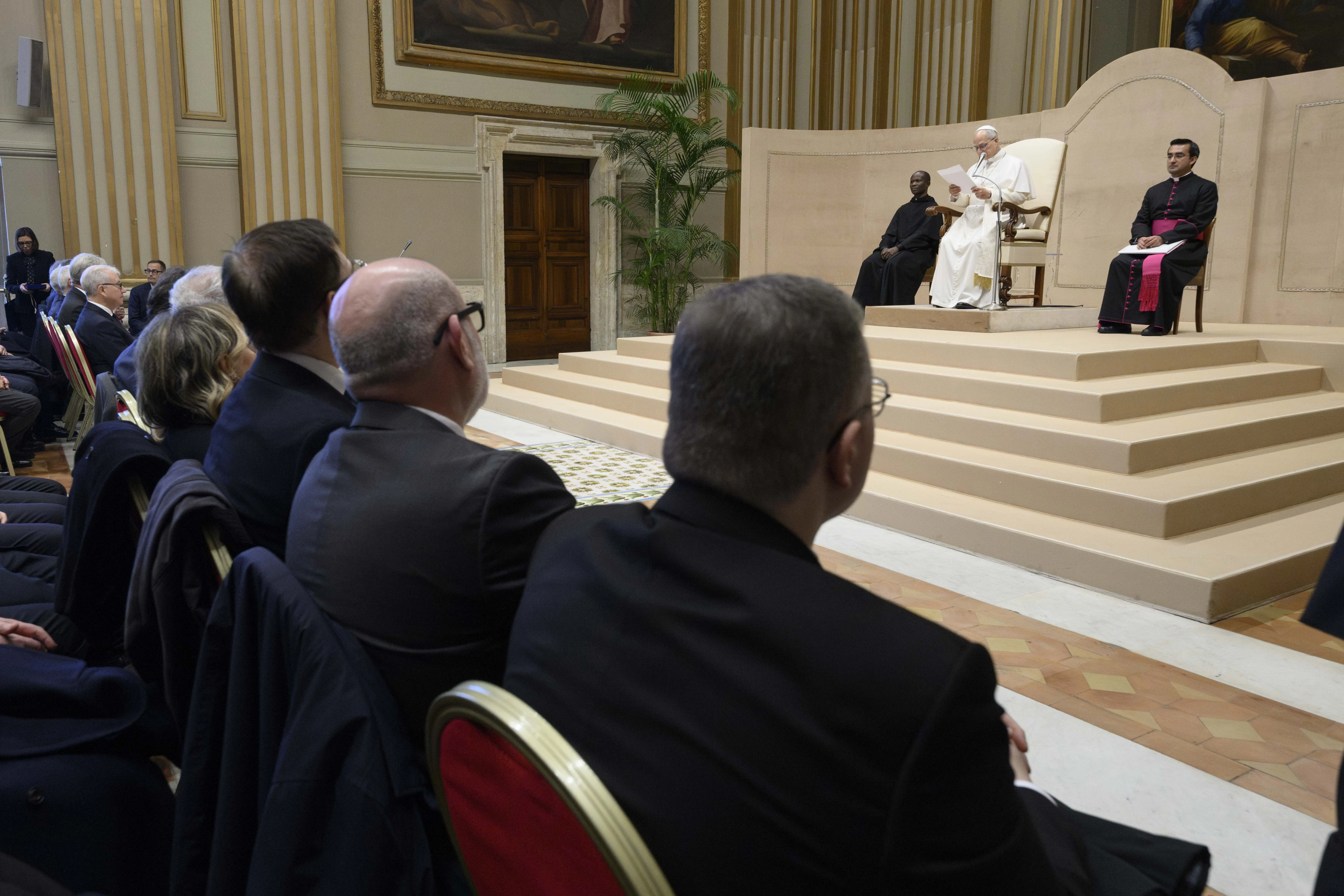The master hires laborers at different hours, but at the end of the day, he pays each of them the same wage, upsetting those who started working first, Francis explained.
“And here,” the pope said, “we understand that Jesus is not talking about work and just wages, which is another problem, but about the Kingdom of God and the goodness of the heavenly Father who continually comes out to invite and pays the maximum to everyone.”
In the parable, the landowner tells the unhappy laborers: “Did you not agree with me for the usual daily wage? Take what is yours and go. What if I wish to give this last one the same as you? Or am I not free to do as I wish with my own money? Are you envious because I am generous?”
Finishing the parable, Jesus told his disciples: “Thus, the last will be first, and the first will be last.”
Pope Francis explained that “whoever reasons with human logic, that is, that of merits acquired with one’s skill, is the first to find himself last.”
He pointed to the example of the Good Thief, one of the criminals crucified next to Jesus, who converted on the cross.
The Good Thief “‘stole’ heaven at the last moment of his life: this is grace, thus acts God. Even with all of us,” Francis said.
“On the other hand, those who try to think about their own merits fail; whoever humbly entrusts himself to the Father’s mercy, ultimately -- like the Good Thief -- finds himself first,” he said.
“May Mary Most Holy help us feel every day the joy and amazement of being called by God to work for him, in his field which is the world, in his vineyard which is the Church. And to have his love, the friendship of Jesus, as the only reward,” he prayed.
The pope said another lesson the parable teaches is the master’s attitude toward the call.








